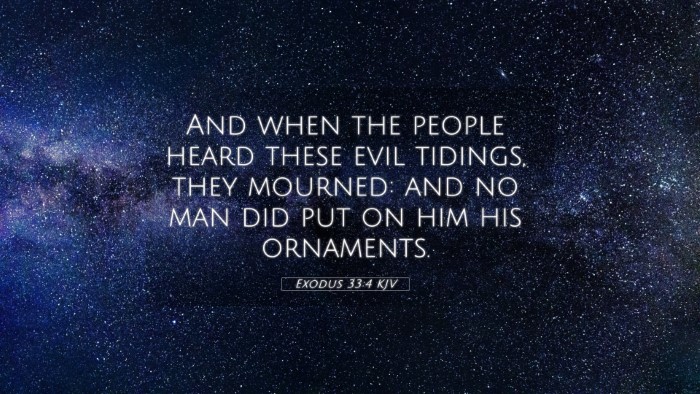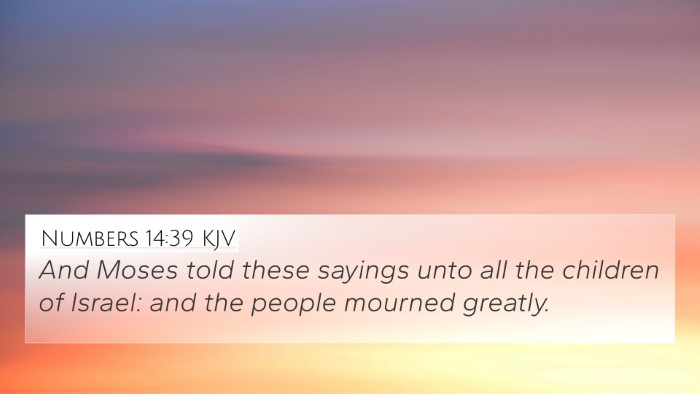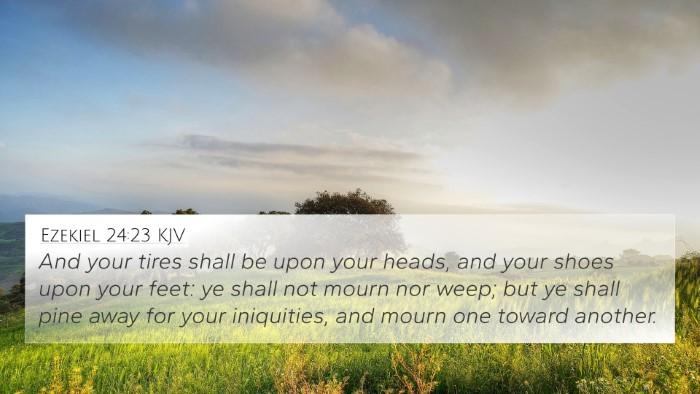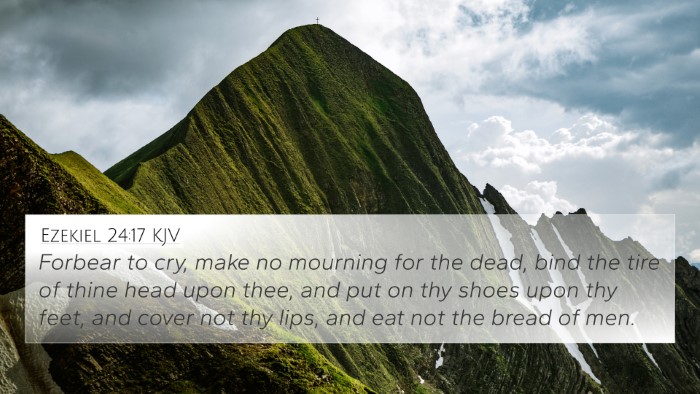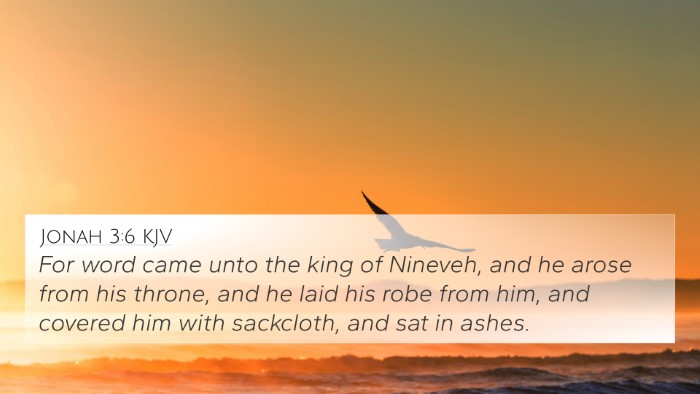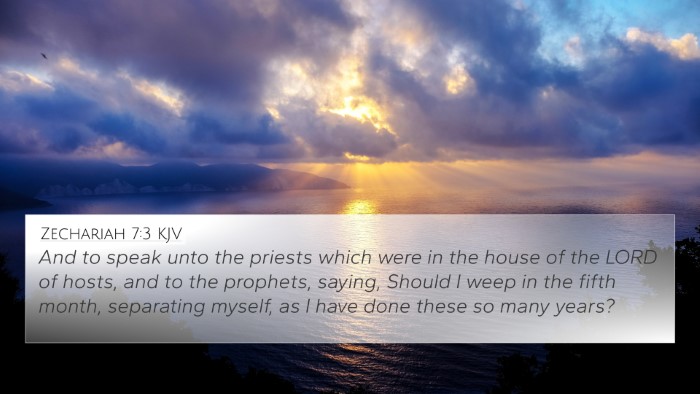Understanding Exodus 33:4
Exodus 33:4 states: "And when the people heard these evil tidings, they mourned: and no man did put on his ornaments." This verse marks a profound moment in the narrative of the Israelites during their wilderness journey, capturing their response to the dire news delivered by Moses. In this summary, we will explore the meaning of this verse using insights from renowned public domain commentaries, providing a deeper understanding of its significance in the Biblical context.
Contextual Significance
Matthew Henry emphasizes that this passage follows a serious revelation concerning God's intention to withdraw His presence from the Israelites due to their idolatry (the incident of the golden calf). The sorrow of the people reflects their awareness of the consequences of their sin and the potential loss of divine favor.
Albert Barnes adds that the term "evil tidings" refers to the disastrous news about God’s displeasure. This revelation strikes deep within the hearts of the people, prompting a collective mourning that signifies their repentance and recognition of their unworthiness.
Adam Clarke elaborates on the significance of the "ornaments" mentioned, interpreting them as symbols of pride and vanity. The refusal to wear ornaments represents a tangible act of mourning and humility, indicating a desire to turn away from their indulgences and seek restoration with God.
Thematic Connections
This verse ties into a larger theme of sin, repentance, and the relationship between God and His people. The mourning of the Israelites serves as an important reminder of the gravity of sin and the consequent need for repentance. This theme reverberates throughout Scripture, establishing strong connections with other passages.
Bible Verse Cross-References
- Exodus 32:30-32 - Moses intercedes for the people, revealing the essence of repentance and the urgency to seek reconciliation with God.
- Psalm 51:17 - "The sacrifices of God are a broken spirit; a broken and contrite heart, O God, you will not despise." This verse echoes the mourning seen in Exodus 33:4.
- Joel 2:12-13 - A call to repentance that mirrors the Israelites' reaction to sin, highlighting the importance of returning to God with sincere hearts.
- James 4:9-10 - Encouragement to grieve over sin and humility before God, further connecting the themes of mourning and recognition of sin.
- Isaiah 57:15 - God's desire to dwell with those who are humble and contrite in spirit, reflecting the Israelites' response to God's displeasure.
- 2 Corinthians 7:10 - Paul speaks of the godly sorrow that leads to repentance, akin to the mourning exhibited by the Israelites.
- Lamentations 3:40 - Encouraging introspection and examination of one’s ways, aligning with the mourning over sin experienced in Exodus.
- John 16:20 - Jesus assures His disciples that mourning will be turned into joy, indicating the transformation that follows true repentance.
- Matthew 5:4 - "Blessed are those who mourn, for they shall be comforted." This beatitude aligns with the theme of sorrow leading to divine comfort and restoration.
- Hebrews 12:1-2 - Exhortation to lay aside every weight and sin which clings so closely, resonating with the need for the Israelites to turn from their ways.
Cross-Referencing Biblical Texts
The act of mourning by the Israelites in Exodus 33:4 can be seen as pivotal in their journey towards redemption. It invites readers to explore further through the lens of
cross-referencing Biblical texts, as it initiates a deeper investigation into the nature of sin and the character of God. This verse becomes a cornerstone for identifying connections between the Old and New Testaments, as highlighted in various interpretative methods.
Comparative Bible Verse Analysis
Conducting a comparative Bible verse analysis brings to light the intricate relationships between different scriptural passages. For instance, by juxtaposing Exodus 33:4 with Psalm 51, one can appreciate the continuity of the theme of humility before God across both the Old and New Testament.
Conclusion
Exodus 33:4 serves as a profound reminder of the seriousness of sin and the importance of turning back to God with sincere hearts. The mourning of the Israelites not only reflects their recognition of wrongdoing but also their desire for restored fellowship with the Almighty. By studying the connections and cross-references associated with this verse, believers can gain a more comprehensive understanding of Biblical themes, ultimately enhancing their spiritual growth through Bible verse parallels and thematic connections.
In conclusion, as we meditate on Exodus 33:4, let us embrace the lessons of repentance and humility, and continuously seek divine restoration through our faith and understanding of Scripture.

